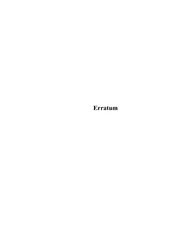Climate and society. A complex and conditional relationship
Doctoral thesis

Permanent lenke
https://hdl.handle.net/1956/2802Utgivelsesdato
2008-05-13Metadata
Vis full innførselSamlinger
- Department of Geography [634]
Sammendrag
Too little rainfall causes human adaptation problems. Too much rainfall as well. The same isvalid for temperature. What makes people vulnerable to climate and what impacts can climatecause on society? Where lies the border of what is still acceptable and what not? When dopeople change their habits and where is intervention needed? What role do people’s perceptionsabout climate play? And can we draw conclusions from one region or time-period to another?This thesis is a contribution to the literature on climate and society linkages. With case-studiesfrom Ethiopia and Norway as well as a literature review from many other regions, it providesempirical evidence of the complexity of the climate-society relationship. It describes thedifficulties associated with deterministic approaches to understanding and predicting the humanimpacts of climate extremes and climate change. Several aspects are covered: Paper 1 elaboratesthe issue of climate vulnerability and discusses the problem of how to distinguish betweenclimate as a trigger or just one out of many influence factors for a specific human response suchas migration. The case-study is directed towards dryland regions and Ethiopia. In Paper 2, againfocusing on Ethiopia, the divergence between climate perceptions and climate measurements istaken up. By explaining the possible origin of the low correlation between them, the importanceof other environmental and social variables becomes evident. Paper 3 attempts to attachmeteorological data to weather narratives in the media and by this annotating what makes up agood and bad weather day in Europe’s rainiest city, Bergen, Norway. The data suggest that it issupply and demand of specific weather events which influence people’s perceptions of attachingpositive or negative features to it. The importance of the seasonal occurrence of weather eventsis revealed. By exploring human climate thresholds, Paper 4 draws on empirical results of aliterature review. By presenting a stimulus-response model, it describes climate’s influence onthe human body and on human perceptions, which determine jointly when and where climatecan trigger and influence certain human activities. Paper 5 is turning back to experiences fromEthiopia, from a combined climate statistics and financial-economic perspective. It investigatesthe subject of climate micro-insurance as a possible adaptation to climate extremes and changefrom the perspective of an insurance provider. The issue of climate risk pooling as well asmaking use of non-covariate spatial climate behaviour for reducing necessary risk capital isaddressed.But as we are all different, people do not necessarily respond to the same climate stimulus in thesame way. Culture, technology and physiological adaptation contribute their part in influencinghuman well-being and in setting limits to society, for example of where to live, what impacts toexpect and what decisions to take.
Består av
Paper I: Mitigation and Adaptation Strategies for Global Change 5(4), Meze-Hausken, Elisabeth, Migration caused by climate change: how vulnerable are people inn dryland areas?, pp. 379-406(28). Copyright 2000 Springer. Abstract only. Full-text not available due to publisher restrictions. The published version is available here: http://dx.doi.org/10.1023/A:1026570529614Paper II: Climate Research 27, Meze-Hauske, Elisabeth, Contrasting climate variability and meteorological drought with perceived drought and climate change in northern Ethiopia, pp. 19-31. Copyright 2004 Inter-Research. http://dx.doi.org/10.3354/cr027019
Paper III: International Journal of Biometeorology 52(1), Meze-Hauske, Elisabeth, Seasons in the sun - weather and climate front-page news stories in Europe’s rainiest city, Bergen, Norway, pp. 17-31. Copyright 2007 Springer. Abstract only. Full-text not available due to publisher restrictions. The published version is available here: http://dx.doi.org/10.1007/s00484-006-0064-5
Paper IV: Climatic Change 89(3-4), Meze-Hauske, Elisabeth, On the (im-)possibilities of defining human climate thresholds, pp. 299-324. Copyright 2008 Springer. Abstract only. Full-text not available due to publisher restrictions. The published version is available here: http://dx.doi.org/10.1007/s10584-007-9392-7
Paper V: Meze-Hausken, Elisabeth; Patt, Anthony; Fritz, Steffen, Reducing climate risk for micro-insurance providers in Africa: a case study of Ethiopia. Preprint version. Copyright 2008 Meze et al.